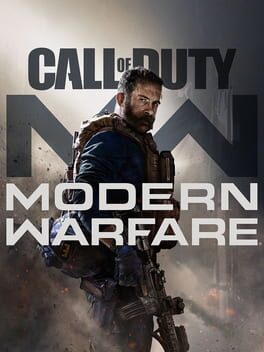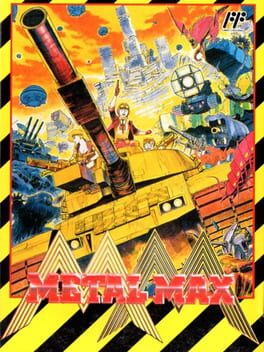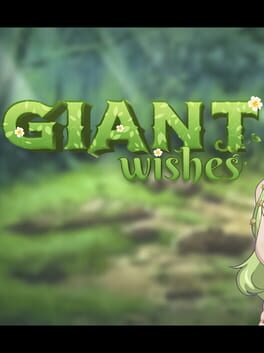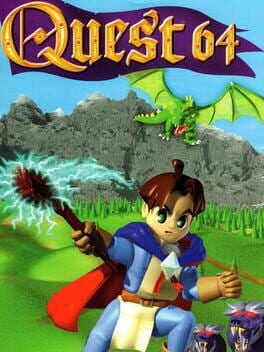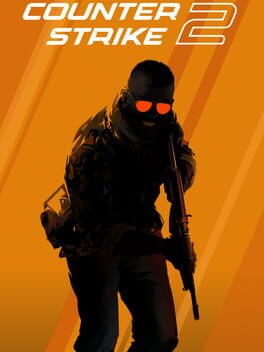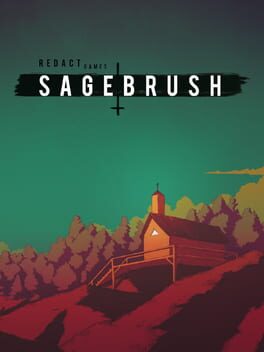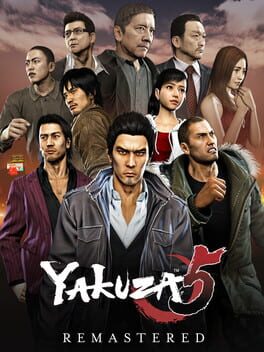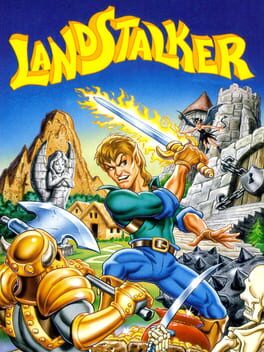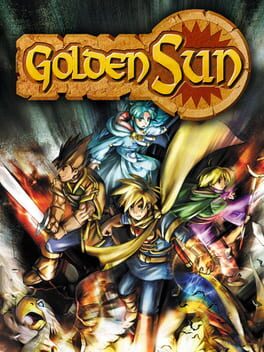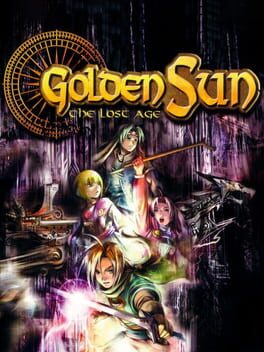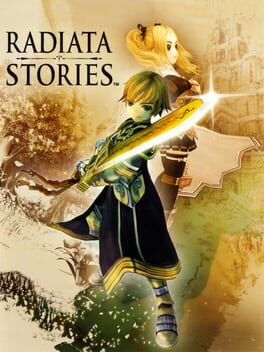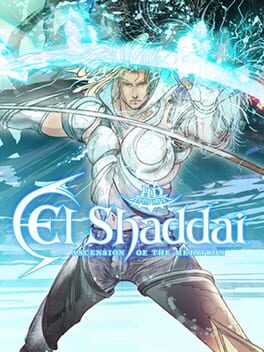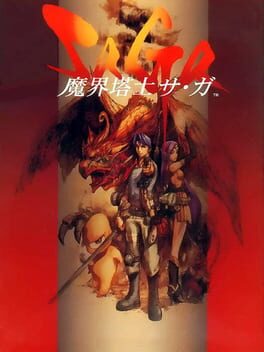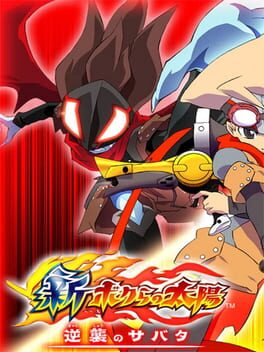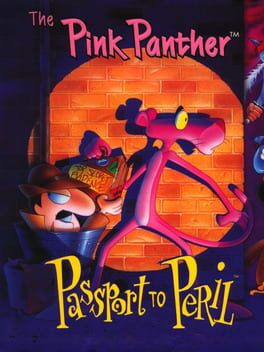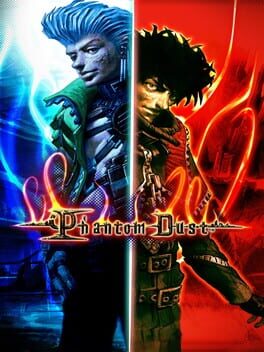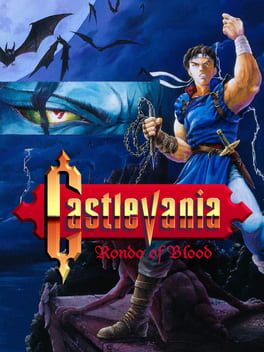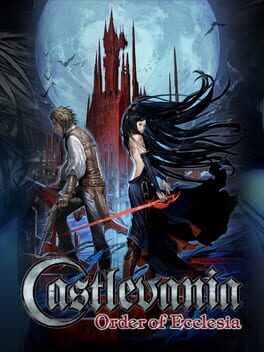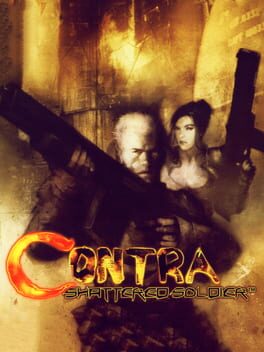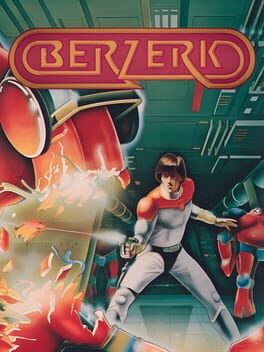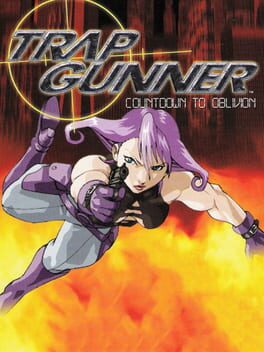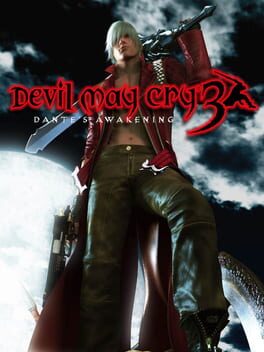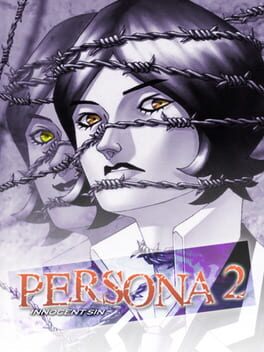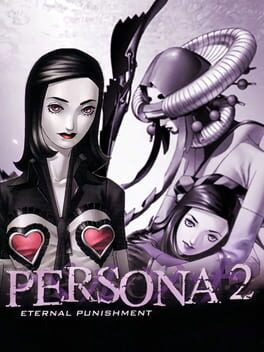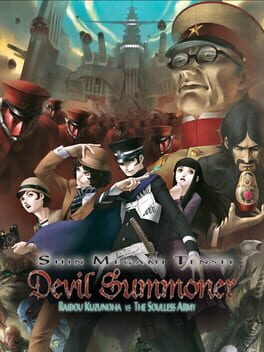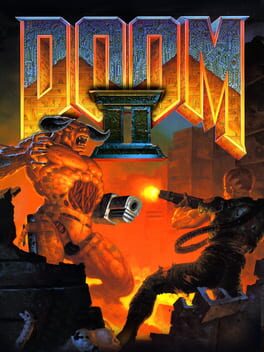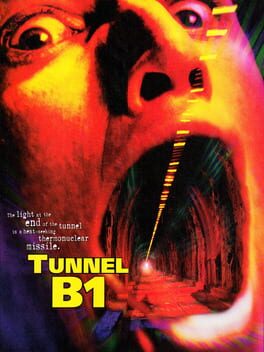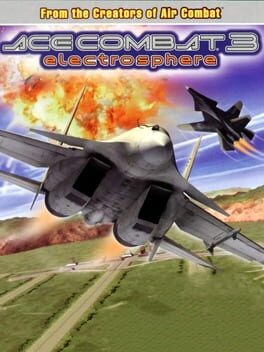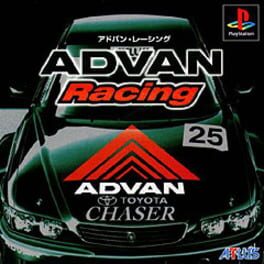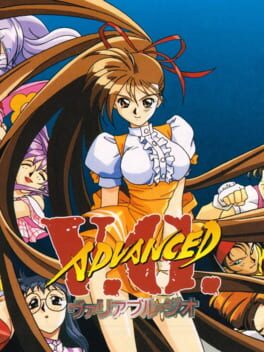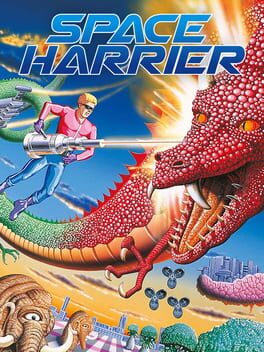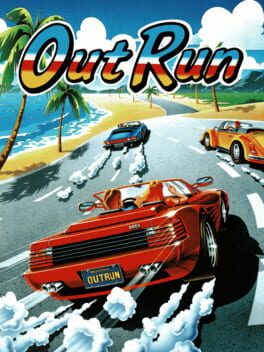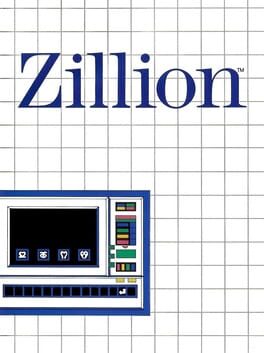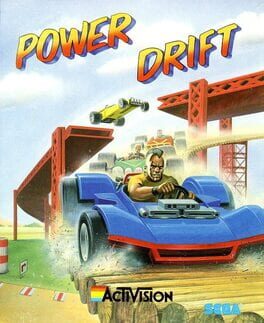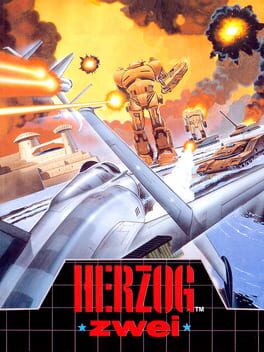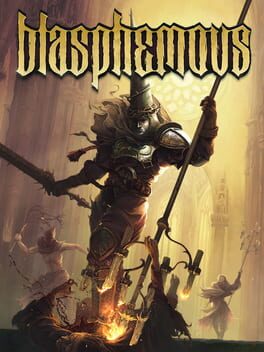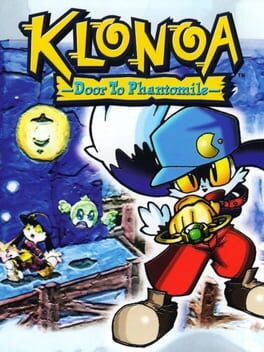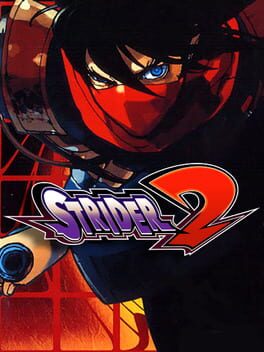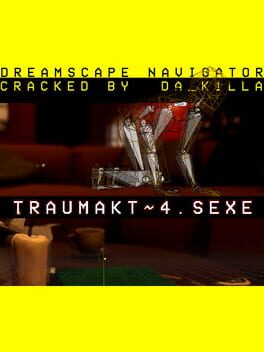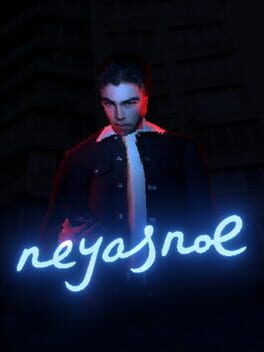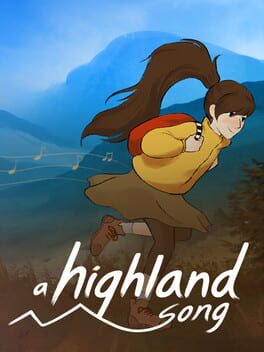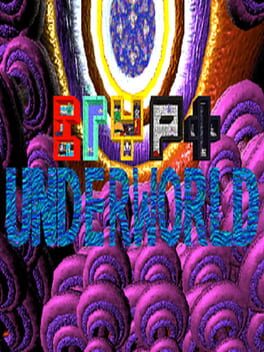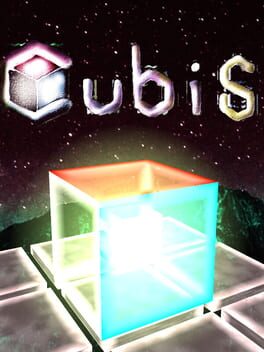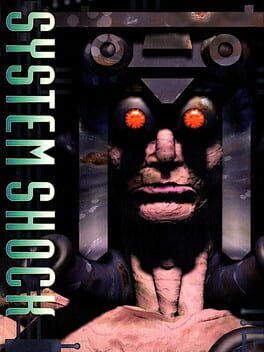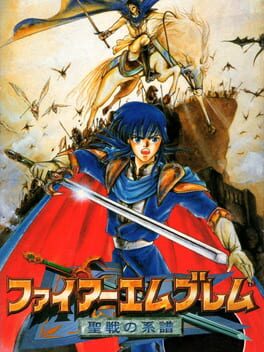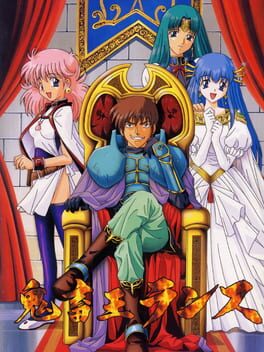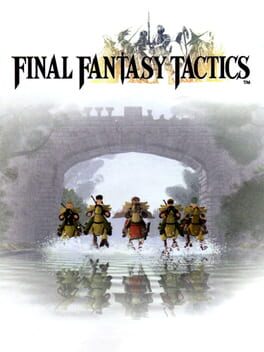drinkrust
346 reviews liked by drinkrust
"This game is so well written, a true return to form!" a passerby says, as I watch cartoonishly evil Russian #376 kill another civilian.
"FPS games at their finest" says a lobotomy patient as I play through a scene where you go through with kidnapping a wife and child and threatening to shoot them, and shooting right next to them, which is okay because they're the wife and child of a SUPER-TERRORIST!
"A truly deep story" says an actor from the "Your Mom Hates Dead Space 2" commercial as I watch the game blame a real world incident where Americans were shooting civilians on the Russians.
"Makes you love the franchise all over again" says the voices in my head, as I play through the scene where you play as a little girl doing Dead By Daylight loops around a gigantic cartoonishly evil Russian man who just killed your father and is now coming to kill you.
"oh sick is this the one where it was like the old ones the multiplayer is awesome" says that one guy you played MW2 with back in 2009 who always camped in every room and spammed OMA Noob-tubes, as I finally beat the waterboarding mini-game and am given my reward.
This game is fucking soulless, the old Modern Warfare games had a bit of a unique charm that you'd only get out of old IW, and the newer CoD games at least tried to have something unique going on, but good job guys, you proved that you'll eat this grey awful mush as long as it reminds you of what you had like 15 years ago.
Also the multiplayer is doo-doo buttcheeks, even Vanguard is better because it had the decency to at least give you Ninja as a perk.
"FPS games at their finest" says a lobotomy patient as I play through a scene where you go through with kidnapping a wife and child and threatening to shoot them, and shooting right next to them, which is okay because they're the wife and child of a SUPER-TERRORIST!
"A truly deep story" says an actor from the "Your Mom Hates Dead Space 2" commercial as I watch the game blame a real world incident where Americans were shooting civilians on the Russians.
"Makes you love the franchise all over again" says the voices in my head, as I play through the scene where you play as a little girl doing Dead By Daylight loops around a gigantic cartoonishly evil Russian man who just killed your father and is now coming to kill you.
"oh sick is this the one where it was like the old ones the multiplayer is awesome" says that one guy you played MW2 with back in 2009 who always camped in every room and spammed OMA Noob-tubes, as I finally beat the waterboarding mini-game and am given my reward.
This game is fucking soulless, the old Modern Warfare games had a bit of a unique charm that you'd only get out of old IW, and the newer CoD games at least tried to have something unique going on, but good job guys, you proved that you'll eat this grey awful mush as long as it reminds you of what you had like 15 years ago.
Also the multiplayer is doo-doo buttcheeks, even Vanguard is better because it had the decency to at least give you Ninja as a perk.
The tears of the Dragon and its significance to the fragmented and familiar world of Hyrule is one of the most beautiful stories Tears of the Kingdom could tell...
Still, the gamified and survivalist mechanics with a touch of ancestral alien technology repeat more intensely in the sequel, to the point where not even one of the most legendary tales of the franchise can impact a... Naked Link.
Yes, a Naked Link.
A Link who learned to communicate with his world through wild and compulsive interaction with it. Objectifying everything he encounters, because everything needs a purpose for him. Even his interactions with female characters with romantic undertones come across as a violation of boundaries.
A hero with the courage to violate what he loves if the end justifies the means? I really can't understand this Link. Maybe a mix of Conan the Barbarian with a Twink but without even the strength or desire to dominate others? A link to the past? I don't really know but I congratulate him for having the courage to spend hours and hours playing pretend as an engineering student.
Still, the gamified and survivalist mechanics with a touch of ancestral alien technology repeat more intensely in the sequel, to the point where not even one of the most legendary tales of the franchise can impact a... Naked Link.
Yes, a Naked Link.
A Link who learned to communicate with his world through wild and compulsive interaction with it. Objectifying everything he encounters, because everything needs a purpose for him. Even his interactions with female characters with romantic undertones come across as a violation of boundaries.
A hero with the courage to violate what he loves if the end justifies the means? I really can't understand this Link. Maybe a mix of Conan the Barbarian with a Twink but without even the strength or desire to dominate others? A link to the past? I don't really know but I congratulate him for having the courage to spend hours and hours playing pretend as an engineering student.
Metal Max
1991
Acho que nunca vi um jogo com uma estrutura narrativa tão inconsequente como a de Metal Max; inconsequente em um sentido de indiferença, ou até mesmo referente a um processo natural e espontâneo; algo que simplesmente... acontece; uma progressão não linear - em contraste a um mundo definido por uma rota de pontos de interesses - todas as ações do jogador são em sua maioria puramente inconsequentes; não há uma lógica que legitima a progressão, apenas a boa vontade (e o interesse claro) de fazer alguma caçada ou não, ou até mesmo de ignorar uma cidade ou não.
Ainda assim, é surreal o cuidado posto a cada cenário. Há aquele aspecto dito “inútil” esparso pelos cenários, que ao final acabam agregando ao senso de jornada do próprio jogador naquele universo (tipo ir para a Torre de Tokyo e simplesmente ver no mesmo andar uma referência ao Michael Jackson ao lado de uma representação de um show de strip-tease).
Dito isso, tal inconsequência combina perfeitamente com o tom extremamente cômico que beira ao sem sentido, havendo as interações mais imbecis e absurdas, como enfrentar uma gangue de Gorilas com Lança chamas, ou até mesmo encontrar um Mamute em formato de tanque em uma cidade totalmente congelada, a qual parece aqueles ginásios de gelo de Pokémon.
A melhor forma de sintetizar a experiência de se jogar Metal Max seria equivaler a experiência de se jogar algum SaGa pela primeira vez, com a exceção de não haver o processo de aprendizado de compreensão dos sistemas que cerceiam o jogo, e com a adesão do tesão que é encontrar uma tanque de guerra pela primeira vez (um bom motivo para grindar a série Metal Max).
Aliás, adoro como esse jogo começa e finaliza: inicia com o seu pai te chutando para fora de casa após você ter comentando que queria se tornar um caçador, e simplesmente finaliza com você chegando para o seu pai dizendo que desistiu de ser um caçador (isso após ter derrotado uma IA que estava ameaçando exterminar a humanidade pelo bem do planeta terra).
Eu realmente amo JRPGs nada ortodoxos
Ainda assim, é surreal o cuidado posto a cada cenário. Há aquele aspecto dito “inútil” esparso pelos cenários, que ao final acabam agregando ao senso de jornada do próprio jogador naquele universo (tipo ir para a Torre de Tokyo e simplesmente ver no mesmo andar uma referência ao Michael Jackson ao lado de uma representação de um show de strip-tease).
Dito isso, tal inconsequência combina perfeitamente com o tom extremamente cômico que beira ao sem sentido, havendo as interações mais imbecis e absurdas, como enfrentar uma gangue de Gorilas com Lança chamas, ou até mesmo encontrar um Mamute em formato de tanque em uma cidade totalmente congelada, a qual parece aqueles ginásios de gelo de Pokémon.
A melhor forma de sintetizar a experiência de se jogar Metal Max seria equivaler a experiência de se jogar algum SaGa pela primeira vez, com a exceção de não haver o processo de aprendizado de compreensão dos sistemas que cerceiam o jogo, e com a adesão do tesão que é encontrar uma tanque de guerra pela primeira vez (um bom motivo para grindar a série Metal Max).
Aliás, adoro como esse jogo começa e finaliza: inicia com o seu pai te chutando para fora de casa após você ter comentando que queria se tornar um caçador, e simplesmente finaliza com você chegando para o seu pai dizendo que desistiu de ser um caçador (isso após ter derrotado uma IA que estava ameaçando exterminar a humanidade pelo bem do planeta terra).
Eu realmente amo JRPGs nada ortodoxos
Giant Wishes
2023
Jiggly Zone
2018
i love me a sylvie and hubol game!
very light spoiler warning, in case you want to go into the game completely blind. if you know you like sylvie's/hubol's games, or if a strange exploration platformer sounds up your alley, then i'd honestly recommend playing that way. it's free in your browser at https://sylvie.website/JIGGLYZONE/, so why not give it a whirl?
-
the game is an exploration, metroidvania platformer. though the majority of the game's world is comprised of only blocks and spikes, with stationary npcs and treasure sprinkled in, sylvie and hubol do a wonderful job making each place feel varied and unique. the level design has a messy, cluttered feel to it, though is never careless; the levels are very deliberate in their overall design. the messiness meshes well with the impressionistic approach the level design uses to depict its environments; the city is represented with simple pillars of blocks, the underwater area conveyed through enclosed levels. each of these varied level design styles creates a unique navigational feel, with players naturally moving differently depending on where they are.
you always have to be thinking about your movement, because the game gets difficult. there's just so many spikes everywhere! you have see and then weave your way through these deathily cluttered places. once you're able to see through the spikes, the levels are rather open. this makes the few places that seem blocked off stand out more. see, the game does have key items required for progression, that grant you new abilities. these abilities are rather simplistic, mechanically, but once you unlock one, you understand the game's level design in a new way; things open up in a way that feel pretty distinct from your standard metroidvania.
there are also plenty of items that do absolutely nothing for you, besides being silly; this game has some fun item descriptions.
the game's presentation is on point.
the messy feel is exemplified through the game's visual style. there are a number of tile graphics for both spikes and blocks, all being rather simple designs, but they're applied seemingly at random. so, parsing the game's levels becomes a challenge requiring the player stay engaged. the backgrounds further add to this, often having a nice scrap-book-y look to them.
hubol and sylvie's color choices are solid throughout, giving each locale a lot of character.
a good soundtrack does a lot for me, and hubol's soundtrack sure as heck is good. while the songs are short, they go a long way towards giving the game its character, with a fun, offbeat, peculiarly catchy sound.
i've mostly neglected, so far in this review, to talk about the characters spread throughout the game world. they're always stationary, the guards never moving from their post, the hooligans never sneaking around, as their dialogue is the point. they're usually amusing, with strange rhymes and random capitalization, but also helps you understand the complexities of this admittedly simple world. you pick up hints of these different cultures, of tragedies that have transpired; you see characters from one place in another, implying they've travelled. i dunno, it's arguably simple, but i feel like they're done really well here.
the game certainly had its flaws, but i didn't care about them. they never subtracted from my experience (though i see how they could for someone else). i quite liked this game. again, it's free and can be played in your browser (https://sylvie.website/JIGGLYZONE/), so if you haven't played it, and it sounds fun, why not try it?
or why not check out the soundtrack on bandcamp? https://hubol.bandcamp.com/album/jiggly-zone-ost
very light spoiler warning, in case you want to go into the game completely blind. if you know you like sylvie's/hubol's games, or if a strange exploration platformer sounds up your alley, then i'd honestly recommend playing that way. it's free in your browser at https://sylvie.website/JIGGLYZONE/, so why not give it a whirl?
-
the game is an exploration, metroidvania platformer. though the majority of the game's world is comprised of only blocks and spikes, with stationary npcs and treasure sprinkled in, sylvie and hubol do a wonderful job making each place feel varied and unique. the level design has a messy, cluttered feel to it, though is never careless; the levels are very deliberate in their overall design. the messiness meshes well with the impressionistic approach the level design uses to depict its environments; the city is represented with simple pillars of blocks, the underwater area conveyed through enclosed levels. each of these varied level design styles creates a unique navigational feel, with players naturally moving differently depending on where they are.
you always have to be thinking about your movement, because the game gets difficult. there's just so many spikes everywhere! you have see and then weave your way through these deathily cluttered places. once you're able to see through the spikes, the levels are rather open. this makes the few places that seem blocked off stand out more. see, the game does have key items required for progression, that grant you new abilities. these abilities are rather simplistic, mechanically, but once you unlock one, you understand the game's level design in a new way; things open up in a way that feel pretty distinct from your standard metroidvania.
there are also plenty of items that do absolutely nothing for you, besides being silly; this game has some fun item descriptions.
the game's presentation is on point.
the messy feel is exemplified through the game's visual style. there are a number of tile graphics for both spikes and blocks, all being rather simple designs, but they're applied seemingly at random. so, parsing the game's levels becomes a challenge requiring the player stay engaged. the backgrounds further add to this, often having a nice scrap-book-y look to them.
hubol and sylvie's color choices are solid throughout, giving each locale a lot of character.
a good soundtrack does a lot for me, and hubol's soundtrack sure as heck is good. while the songs are short, they go a long way towards giving the game its character, with a fun, offbeat, peculiarly catchy sound.
i've mostly neglected, so far in this review, to talk about the characters spread throughout the game world. they're always stationary, the guards never moving from their post, the hooligans never sneaking around, as their dialogue is the point. they're usually amusing, with strange rhymes and random capitalization, but also helps you understand the complexities of this admittedly simple world. you pick up hints of these different cultures, of tragedies that have transpired; you see characters from one place in another, implying they've travelled. i dunno, it's arguably simple, but i feel like they're done really well here.
the game certainly had its flaws, but i didn't care about them. they never subtracted from my experience (though i see how they could for someone else). i quite liked this game. again, it's free and can be played in your browser (https://sylvie.website/JIGGLYZONE/), so if you haven't played it, and it sounds fun, why not try it?
or why not check out the soundtrack on bandcamp? https://hubol.bandcamp.com/album/jiggly-zone-ost
Jumpwad
2022
This review contains spoilers
i don't like jumping. i don't like collecting. i don't like doing those two things in first person perspective. however, that doesn't mean i instantly dislike a game because of it!
jumpwad is really fun and it has everything going for it. once you get used to the controls you can skim through the levels as fast as a rabbit. the rocket mechanic that is introduced in map05 aka "It's Cold Up Here" is specially fun.
the music is a big highlight. my favorites are the main menu theme, the one from map01, map05 and specially map07 aka "Bread And Bear" (which is a great name for a stage). now,
--------------------------------------------------------------
EVERY LEVEL IN JUMPWAD RANKED!
#7: Unlimited Ice Cream Factory.
boring song, a more closed interior, not particularly interesting visuals... i admit i skipped through this one.
#6: There's Been a Murder.
i don't understand what the name means. is it a reference to something in specific? i like a few of the ideas, such as using an Archville to jump twice, but the level design is really confusing and not very fun to play. the visuals are also a bit lacking.
#5: Jump City.
well, it is a city To jump alright. my favorite thing about it is that the buildings on the outside are actual buildings and not just a skybox, it looks so cool. other than that, not particularly fun except for a few trickier parts.
4#: Inside Job.
probably the most fun to just jump around? also amazing level design, really cool finding out every path and hidden stuff.
3#: Bread and Bear.
as i said before, amazing music and amazing title. the level slowly unveils itself, seemingly small at first but keeps getting bigger. i don't know what i want more from it but it certainly isn't the best.
2#: Temple of the Jump God.
amazing first impressions. number 4 best song in the game, my favorite visuals in the game alongside number 1 of this list, really gives you enough room to get used to the jumping.
1#: It's Cold Up Here.
i don't know exactly why i love this one so much... maybe because i love snowy levels? i really like the song and that one part where you have to meticulously parkour in these steep ass platforms which are also really high and give you juuuust enough distance to get there... i love it. i could live in that place.
---------------------------------------------------------
overall i just wish this wad was more surreal and experimental on the visual side, also maybe use mp3s instead of midis but at the same time i love the midi sounds of the menu theme and bread and bear. i will probably keep replaying this.
jumpwad is really fun and it has everything going for it. once you get used to the controls you can skim through the levels as fast as a rabbit. the rocket mechanic that is introduced in map05 aka "It's Cold Up Here" is specially fun.
the music is a big highlight. my favorites are the main menu theme, the one from map01, map05 and specially map07 aka "Bread And Bear" (which is a great name for a stage). now,
--------------------------------------------------------------
EVERY LEVEL IN JUMPWAD RANKED!
#7: Unlimited Ice Cream Factory.
boring song, a more closed interior, not particularly interesting visuals... i admit i skipped through this one.
#6: There's Been a Murder.
i don't understand what the name means. is it a reference to something in specific? i like a few of the ideas, such as using an Archville to jump twice, but the level design is really confusing and not very fun to play. the visuals are also a bit lacking.
#5: Jump City.
well, it is a city To jump alright. my favorite thing about it is that the buildings on the outside are actual buildings and not just a skybox, it looks so cool. other than that, not particularly fun except for a few trickier parts.
4#: Inside Job.
probably the most fun to just jump around? also amazing level design, really cool finding out every path and hidden stuff.
3#: Bread and Bear.
as i said before, amazing music and amazing title. the level slowly unveils itself, seemingly small at first but keeps getting bigger. i don't know what i want more from it but it certainly isn't the best.
2#: Temple of the Jump God.
amazing first impressions. number 4 best song in the game, my favorite visuals in the game alongside number 1 of this list, really gives you enough room to get used to the jumping.
1#: It's Cold Up Here.
i don't know exactly why i love this one so much... maybe because i love snowy levels? i really like the song and that one part where you have to meticulously parkour in these steep ass platforms which are also really high and give you juuuust enough distance to get there... i love it. i could live in that place.
---------------------------------------------------------
overall i just wish this wad was more surreal and experimental on the visual side, also maybe use mp3s instead of midis but at the same time i love the midi sounds of the menu theme and bread and bear. i will probably keep replaying this.
Quest 64
1998
Imagineer coined a uniquely minimal (level-less, item-limited, currency-less and party-less) form of JRPG with Quest 64, whose light storytelling, vast 3D areas and day/night cycles brought them closer to computer-RPGs than to its console-born siblings. What is undoubtedly CRPG-like - however, is their flexible upgrade system. Stat-leveling in the vein of FFII (i.e. earned from various parts of combat) is joined by collectible skill points distributed between 4 elements (which unlock new spells of that type and increase their power). Their combinations - from balanced spreads to a dual-type hyperfocus, governs the player's build with their own merits and limits. That sense of freedom well-complements their turn-based battles; seamless, responsive on-map gameplay with confined movement/dodging that's heavy on the spellcasting, reined in a little by elemental weaknesses and resistance. These two features rescue a work that otherwise would be dull and clumsy, as its lengthy overworld & dungeons plus a general dearth of content (other than a handful of pickups) make for some patience-testing trips. As a result, gameplay oscillates between moments of snappy, entertaining semi-action and sheer torture.
This brief project is many things at once, and - depending on taste, some conclusions are more prominent than others: A few great ideas placed on weak foundations. A half-baked mess. An interesting compromise between action & tactical gameplay. A novel fusion of Western/J-RPG languages, or even a grim omen of their genre's future; of the overscaled, empty worlds that progressively defined the next generation onwards. At the very least - though, a fascinating artifact of its era.
This brief project is many things at once, and - depending on taste, some conclusions are more prominent than others: A few great ideas placed on weak foundations. A half-baked mess. An interesting compromise between action & tactical gameplay. A novel fusion of Western/J-RPG languages, or even a grim omen of their genre's future; of the overscaled, empty worlds that progressively defined the next generation onwards. At the very least - though, a fascinating artifact of its era.
Control
2019
Eu sinto pena de Control ser um jogo e não poder ser chamado de surrealista.
Antes que esse comentário soe como pedante ou diminutivo para jogos como arte ou Control como um jogo, preciso deixar claro o que senti enquanto jogava Control.
Eu já havia deixado de jogar Control antes, mas por estar testando e não ter ido muito a fundo no que se tratava. Depois de ter jogado Alan Wake, jogar Control era o próximo passo lógico e estava emocionalmente preparado para o que quer que fosse esse jogo.
Control é bem estranho, de fato.
Visualmente, é um espetáculo, o surrealismo aqui se mistura ao brutalismo e nos deixa insignificantes e ao mesmo tempo, inconsequentes. Isso, apoiado em uma narrativa bem única, promove um jogo AAA pelo menos “estranho” e nisso Control me fisgou em vários momentos. É uma pena, porém, esse jogo encontrar amarras justamente no que o torna um jogo.
Inicialmente, as mecânicas de Control são: jogo de ação com poderes. Os poderes não são nada de mais e a maior conexão que consigo tirar é que, de fato, estamos TOMANDO CONTROLE.
Os poderes nos fazem tomar controle de objetos, pessoas e até de nós mesmos ao levitarmos e manipularmos nosso corpo. Porém, essa conexão é uma linha fina e sensível que acaba se estourando ao ser estressada pelo loop encharcado de combate. Eventualmente, o ato de controlar, que inicialmente parece tão significativo quanto a lanterna do Alan Wake, se torna apenas mais uma mecânica de combate junto às diversas armas, upgrades e mods que você encontra pelo jogo.
O momento em que Control foi mais livre é o labirinto vivo do TAKE CONTROL. Ali o jogo consegue ser livre em estética e arte, mas também em mecânica, ainda mais se, assim como eu, você balanceou o jogo para ter energia quase infinita e poder flutuar e usar poderes à vontade. Se eu não tivesse feito isso, talvez não teria terminado esse jogo, mas, graças a uma feature modular de dificuldade, consegui ter uma experiência boa, mas que beirou o cansaço e exaustão de combate, ainda mais quando se trata da FUNDAÇÃO, a DLC que é, basicamente, combate e puzzles.
Puzzles aqui que não usam 100% do que poderíamos fazer com a simples mecânica de telecinese. Em Alan Wake, por exemplo, a Remedy extrapola mais o significado de luz e temos equipamentos e puzzles que utilizam a luz, alguns até de forma inteligente. Aqui, os puzzles são simples e parece que a mecânica de telecinese se resume a encaixar objeto A no ponto B, coisa que poderíamos fazer com as mãos.
Porém, se formos olhar em uma perspectiva de design, Control é amarradinho no que se espera de um jogo, e é nesse ponto que eu não gosto da conceitualização de Control como “video games”. Do mesmo jeito que criticamos a implementação de mundos abertos sem um porquê, sidequests, níveis e loot sem um porquê em jogos AAA do mercado, me pergunto o mesmo para Control que, surpreendentemente, inclui cada um desses aspectos citados. Agora, por que? Não consegui encontrar essa resposta no jogo, mas em mim, isso apenas me desconectou da experiência como faria em qualquer jogo da Ubisoft.
Na verdade, essa falta de conexão na minha experiência ficou também na narrativa. Apesar de adorar sua direção, os temas são, basicamente, Worldbuilding. A trama pessoal da Jesse aqui não importou muito para mim já que o jogo parecia se importar mais em explicar e estender as regras daquele universo.
Existe uma questão sobre explicar universos fictícios que me intriga em alguns jogos, o apego pelas regras. As regras do mundo são cruciais para a elaboração de um worldbuilding, é isso que aprendemos em cursos de narrative design, mas quando vejo um jogo que se preocupa tanto com regras e “porquês” eu sinto um realismo que não me agrada muito em jogos que querem ser tão livres quanto Control. Ao meu ver, esses jogos brilham quando justamente o Porquê não está em um item de lore, um codex ou uma teoria do personagem, mas sim em nossa interpretação.
Por que a Jesse é a Diretora? Porque o jogo é sobre controle, e para mim, isso é suficiente.
Mas, novamente, isso é esperado de grandes jogos. Mesmo sabendo que jogos são tão jogos com ou sem combate, upgrades, mundo aberto e um worldbuilding coeso, Control parece se render, o que é uma pena. Afinal, não diria que Control é surreal, já que absolutamente tudo naquele jogo está imerso e ancorado na sua própria realidade e, sendo as suas regras claras, as consequências são previsíveis e pouco subjetivas, mas pelo menos divertidas.
Antes que esse comentário soe como pedante ou diminutivo para jogos como arte ou Control como um jogo, preciso deixar claro o que senti enquanto jogava Control.
Eu já havia deixado de jogar Control antes, mas por estar testando e não ter ido muito a fundo no que se tratava. Depois de ter jogado Alan Wake, jogar Control era o próximo passo lógico e estava emocionalmente preparado para o que quer que fosse esse jogo.
Control é bem estranho, de fato.
Visualmente, é um espetáculo, o surrealismo aqui se mistura ao brutalismo e nos deixa insignificantes e ao mesmo tempo, inconsequentes. Isso, apoiado em uma narrativa bem única, promove um jogo AAA pelo menos “estranho” e nisso Control me fisgou em vários momentos. É uma pena, porém, esse jogo encontrar amarras justamente no que o torna um jogo.
Inicialmente, as mecânicas de Control são: jogo de ação com poderes. Os poderes não são nada de mais e a maior conexão que consigo tirar é que, de fato, estamos TOMANDO CONTROLE.
Os poderes nos fazem tomar controle de objetos, pessoas e até de nós mesmos ao levitarmos e manipularmos nosso corpo. Porém, essa conexão é uma linha fina e sensível que acaba se estourando ao ser estressada pelo loop encharcado de combate. Eventualmente, o ato de controlar, que inicialmente parece tão significativo quanto a lanterna do Alan Wake, se torna apenas mais uma mecânica de combate junto às diversas armas, upgrades e mods que você encontra pelo jogo.
O momento em que Control foi mais livre é o labirinto vivo do TAKE CONTROL. Ali o jogo consegue ser livre em estética e arte, mas também em mecânica, ainda mais se, assim como eu, você balanceou o jogo para ter energia quase infinita e poder flutuar e usar poderes à vontade. Se eu não tivesse feito isso, talvez não teria terminado esse jogo, mas, graças a uma feature modular de dificuldade, consegui ter uma experiência boa, mas que beirou o cansaço e exaustão de combate, ainda mais quando se trata da FUNDAÇÃO, a DLC que é, basicamente, combate e puzzles.
Puzzles aqui que não usam 100% do que poderíamos fazer com a simples mecânica de telecinese. Em Alan Wake, por exemplo, a Remedy extrapola mais o significado de luz e temos equipamentos e puzzles que utilizam a luz, alguns até de forma inteligente. Aqui, os puzzles são simples e parece que a mecânica de telecinese se resume a encaixar objeto A no ponto B, coisa que poderíamos fazer com as mãos.
Porém, se formos olhar em uma perspectiva de design, Control é amarradinho no que se espera de um jogo, e é nesse ponto que eu não gosto da conceitualização de Control como “video games”. Do mesmo jeito que criticamos a implementação de mundos abertos sem um porquê, sidequests, níveis e loot sem um porquê em jogos AAA do mercado, me pergunto o mesmo para Control que, surpreendentemente, inclui cada um desses aspectos citados. Agora, por que? Não consegui encontrar essa resposta no jogo, mas em mim, isso apenas me desconectou da experiência como faria em qualquer jogo da Ubisoft.
Na verdade, essa falta de conexão na minha experiência ficou também na narrativa. Apesar de adorar sua direção, os temas são, basicamente, Worldbuilding. A trama pessoal da Jesse aqui não importou muito para mim já que o jogo parecia se importar mais em explicar e estender as regras daquele universo.
Existe uma questão sobre explicar universos fictícios que me intriga em alguns jogos, o apego pelas regras. As regras do mundo são cruciais para a elaboração de um worldbuilding, é isso que aprendemos em cursos de narrative design, mas quando vejo um jogo que se preocupa tanto com regras e “porquês” eu sinto um realismo que não me agrada muito em jogos que querem ser tão livres quanto Control. Ao meu ver, esses jogos brilham quando justamente o Porquê não está em um item de lore, um codex ou uma teoria do personagem, mas sim em nossa interpretação.
Por que a Jesse é a Diretora? Porque o jogo é sobre controle, e para mim, isso é suficiente.
Mas, novamente, isso é esperado de grandes jogos. Mesmo sabendo que jogos são tão jogos com ou sem combate, upgrades, mundo aberto e um worldbuilding coeso, Control parece se render, o que é uma pena. Afinal, não diria que Control é surreal, já que absolutamente tudo naquele jogo está imerso e ancorado na sua própria realidade e, sendo as suas regras claras, as consequências são previsíveis e pouco subjetivas, mas pelo menos divertidas.
Counter-Strike 2
2023
The first ever shot I took in my first ever game of any Counter Strike, which I fired completely haphazardly out of my hip, turned out to be a piercing double kill with a single AWP sniper bullet to end the round as the second to last guy standing.
One eastern-European sounding guy in the voice chat went nuts and the next round the entire squad followed me.
I should have just quit playing right then and there, while I was still riding that high, because they soon realised what a fucking noob I actually am and I remembered why I normaly, preemptively choose to mute my squad-fill in most online games I suck at.
Also, as an Austrian guy who loves to paint, I hate that there is an instantly recognisable, shitheaded implication in the gamer tag "Austrian Painter" which was next to the muscle flexing profil picture of a sly nazi, at least -sympathizer, idiot, who hard-carried me the entire next game.
Or maybe he meant Schiele or Kokoschka we'll never know. He might enjoy going to the museum after working out or headshotting some shitters like me.
Nah, we all know who he meant.
I just hate that we all know who he meant.
One eastern-European sounding guy in the voice chat went nuts and the next round the entire squad followed me.
I should have just quit playing right then and there, while I was still riding that high, because they soon realised what a fucking noob I actually am and I remembered why I normaly, preemptively choose to mute my squad-fill in most online games I suck at.
Also, as an Austrian guy who loves to paint, I hate that there is an instantly recognisable, shitheaded implication in the gamer tag "Austrian Painter" which was next to the muscle flexing profil picture of a sly nazi, at least -sympathizer, idiot, who hard-carried me the entire next game.
Or maybe he meant Schiele or Kokoschka we'll never know. He might enjoy going to the museum after working out or headshotting some shitters like me.
Nah, we all know who he meant.
I just hate that we all know who he meant.
Sagebrush
2018
a perfectly fine keyhunt, though the reality of cults and their slow inducement via gentle attrition is rushed for the sake of a convenient background. despite the lack of any actual threat to the player, there remains a cloying presence on the empty compound which hangs thick over every step in progression. there is no conclusion, only an inevitability.
somewhat spoilers, but in the vein of believability i wish more care was taken into portraying James both in voice and writing; cult leader who seemingly coerced tens of people into militant aggression and mass self-harm also seen fumbling over nudie magazines and his own safe lock, rehearsing his empty speeches within earshot of a believer.
somewhat spoilers, but in the vein of believability i wish more care was taken into portraying James both in voice and writing; cult leader who seemingly coerced tens of people into militant aggression and mass self-harm also seen fumbling over nudie magazines and his own safe lock, rehearsing his empty speeches within earshot of a believer.
51 lists liked by drinkrust
by Rowl_ |
10 Games
by FallenGrace |
33 Games
by aglhrm |
48 Games
by totolecc |
39 Games
by oldinamerica |
25 Games
by Alviner |
80 Games
